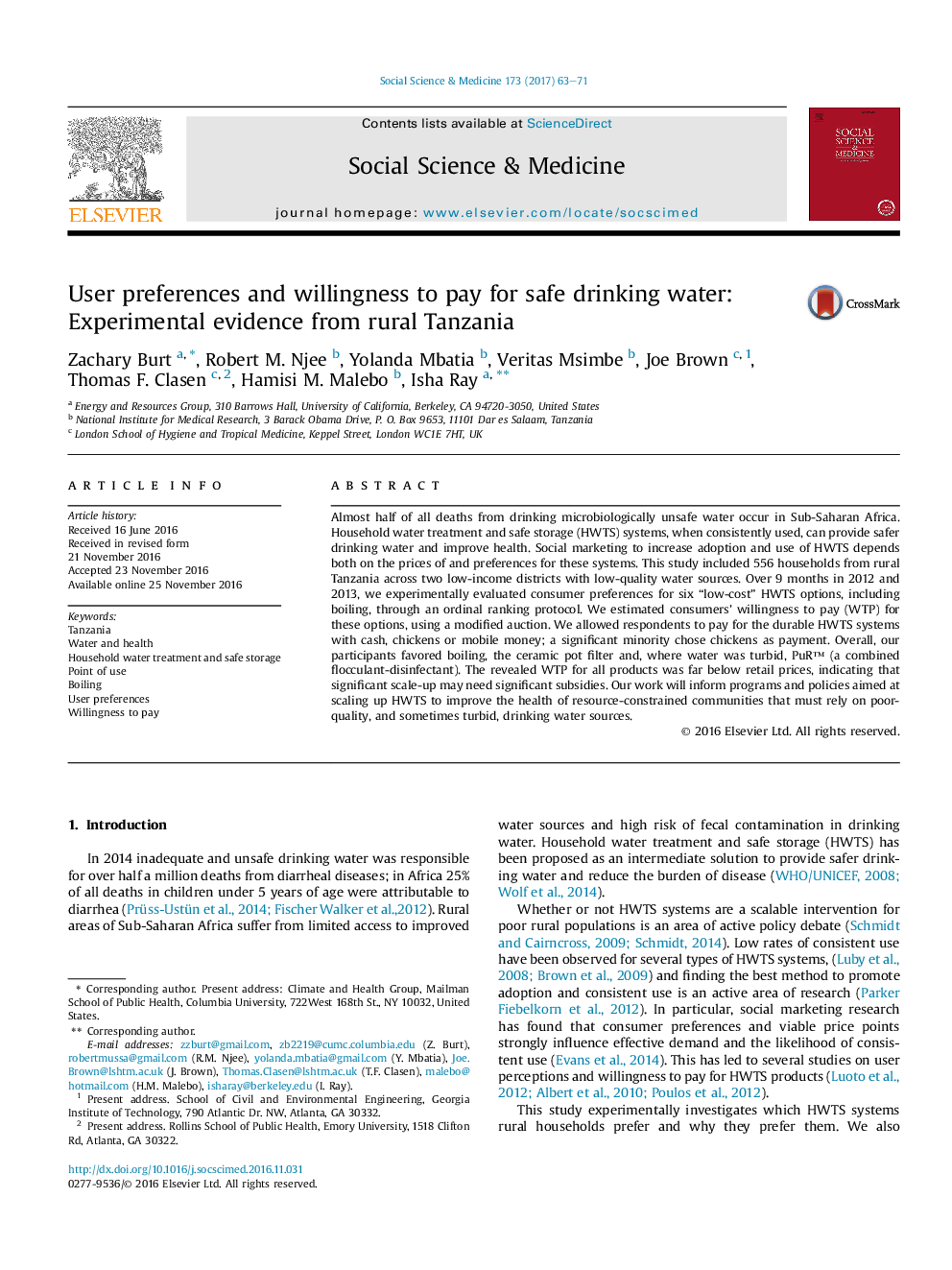| کد مقاله | کد نشریه | سال انتشار | مقاله انگلیسی | نسخه تمام متن |
|---|---|---|---|---|
| 5046770 | 1475996 | 2017 | 9 صفحه PDF | دانلود رایگان |
- Boiling and the ceramic pot filter are the most preferred HWTS systems.
- Source turbidity is correlated with stronger/weaker preferences for different HWTS.
- Average willingness to pay for all HWTS is more than 0 and less than retail prices.
- Willingness to pay may not be a good indicator of future sustained use.
- Scale-up will require significant subsidies or significantly cheaper products.
Almost half of all deaths from drinking microbiologically unsafe water occur in Sub-Saharan Africa. Household water treatment and safe storage (HWTS) systems, when consistently used, can provide safer drinking water and improve health. Social marketing to increase adoption and use of HWTS depends both on the prices of and preferences for these systems. This study included 556 households from rural Tanzania across two low-income districts with low-quality water sources. Over 9 months in 2012 and 2013, we experimentally evaluated consumer preferences for six “low-cost” HWTS options, including boiling, through an ordinal ranking protocol. We estimated consumers' willingness to pay (WTP) for these options, using a modified auction. We allowed respondents to pay for the durable HWTS systems with cash, chickens or mobile money; a significant minority chose chickens as payment. Overall, our participants favored boiling, the ceramic pot filter and, where water was turbid, PuR⢠(a combined flocculant-disinfectant). The revealed WTP for all products was far below retail prices, indicating that significant scale-up may need significant subsidies. Our work will inform programs and policies aimed at scaling up HWTS to improve the health of resource-constrained communities that must rely on poor-quality, and sometimes turbid, drinking water sources.
Journal: Social Science & Medicine - Volume 173, January 2017, Pages 63-71
